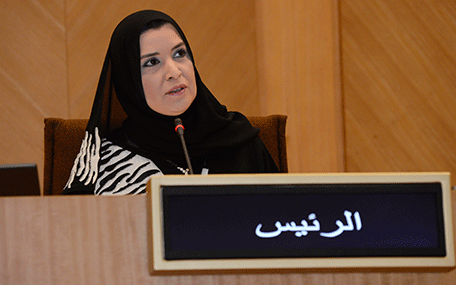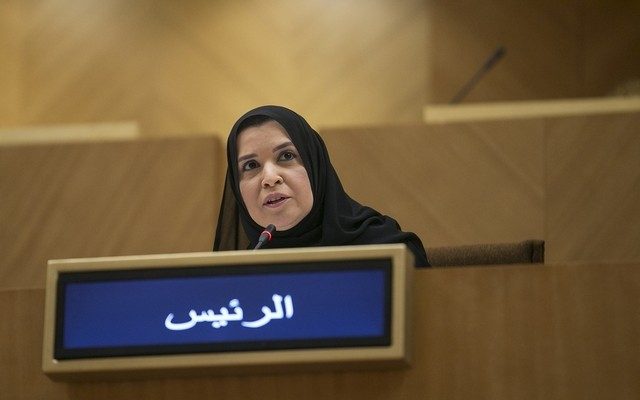 Amal al-Qubaisi, President of the UAE Federal National Council
Amal al-Qubaisi, President of the UAE Federal National Council
In the United Arab Emirates (UAE), the government restricts men and women’s rights as voters and political candidates. In 2006, the government instituted a public voting process for the country’s 40-member parliamentary body, the Federal National Council (FNC), for the first time. However, authorities have severely limited citizens’ voting power. Emirs, rulers from the country’s seven emirates, appoint half the members of the FNC. The remaining half of the members are determined in public elections, in which the Emir gives voting privileges to a select number of citizens who make up the electoral college.
In this already-limited political realm, women are particularly disenfranchised. During the first public vote in 2006, the Emirs selected a total 6,689 voters for the country’s electoral college. Less than 20 percent of the voters were women. Of the 456 FNC candidates, 65 were women. Though some government officials encouraged members of the public to empower women with their votes, only one woman, Dr. Amal al-Qubaisi, won a seat in the FNC.
In 2011, the UAE government permitted non-nationals, who constituted 80 percent of the country’s population, to vote for the first time. The government subsequently expanded the electoral college from 6,689 to 129,274 members. Women comprised approximately 46 percent of these appointed voters.
Though the electoral college’s expansion included more female voters, women remain politically underrepresented in the FNC. In November 2015, al-Qubaisi was still the only woman out of 78 female candidates and 330 total candidates to be elected to the FNC. As in 2006, the government appointed eight more women to the FNC. In a decrease from the 2011 elections, women made up around 40 percent of the 2015 electoral college.
Social norms hinder women from being politically active in the UAE. The Ministry of State for FNC Affairs surveyed candidates from the 2006 elections, as well as members of the electoral college, regarding their attitudes toward women in politics. The study found that 62 percent of men believe women have special talents in politics, with many respondents questioning women’s ability to manage her political career alongside her family duties. The majority of male and female respondents also believed that UAE voters have more confidence in male politicians than in their female counterparts.
There are concerns that appointed FNC representatives are chosen based on their ties to royal Emirs, and that they may be granted more legislative power than elected members. This calls into question the FNC’s ability to make social changes that disrupt longstanding Emirati traditions, as the royal families may have a heavy hand over legislators’ decisions. This has led to criticism of the FNC for touting women’s rights, in spite of its failure to initiate substantive legal reform.
Due to a lack of transparency in the UAE’s political process, it is difficult to determine the amount of influence female FNC members have over policy and legislation. The law that provides public access to government information is selectively applied, and there are no training programs for UAE officials to encourage state transparency. This information is necessary in evaluating the amount of authority extended to elected FNC representatives, women’s roles in government, and the appropriate measures for improving gender equality in the UAE.
Farah Kader is an Advocacy Fellow at ADRHB.





